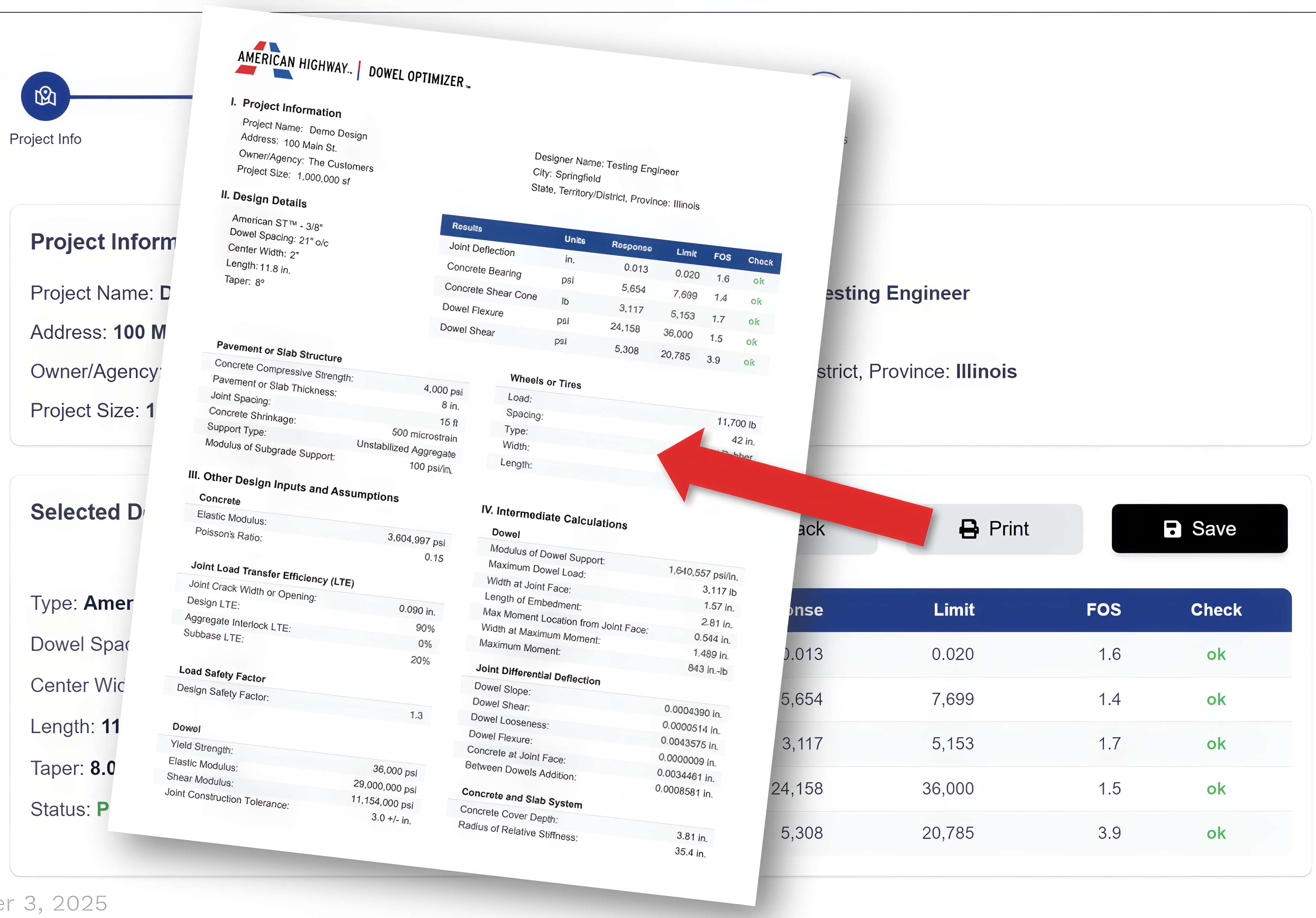

The Dowel Optimizer™ uses an advanced range of inputs to accurately assess the performance capabilities of all dowel geometries and materials based on specific project demands and equipment. Designers can customize specific dowels for a project and compare multiple dowel types, side-by-side, in highway, paving and industrial commercial designs.
Additionally, information about using the Dowel Optimizer™, what’s under the hood, and many other advanced topics can also be found on the Tutorials page.

Many industry guidelines—like ACI 360—offer general dowel sizing based only on slab thickness. This can lead to over-design (wasted cost and embodied carbon emissions) or under-design (slab failure). These standards often do not consider:

The Dowel Optimizer™ uses 20 critical project parameters to:



The Dowel Optimizer™ customizes the dowel design based on loads, wheel types, joint type/spacing and traffic patterns. Compared to traditional dowel designs, the Dowel Optimizer™ can reduce the amount of steel in a slab design by up to 55 percent.
Load Type | Standard Design | Dowel Optimizer Result | Savings |
|---|---|---|---|
18" Slab, 18 Wheeler | 1" Round @ 12" o.c. (14.1 in3/ft) | 3/4" Round @ 15" o.c. (6.4 in3/ft) | 55% Less Steel |
Pallet Lift Truck (8kb lb) | 3/4" Round @ 21" o.c. | Tapered Plate @ 24" o.c. | Lower cost & CO2 |
Forklift (12K lb) | 3/4" Round @ 15" o.c. | Tapered Plate @ 21" o.c. | Wider spacing = savings |
Designs consider differential deflection tolerance by wheel type -0.01” small hard wheels, 0.02” solid rubber tires, 0.03” pneumatic tires


